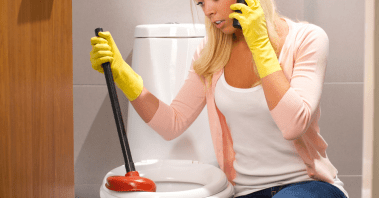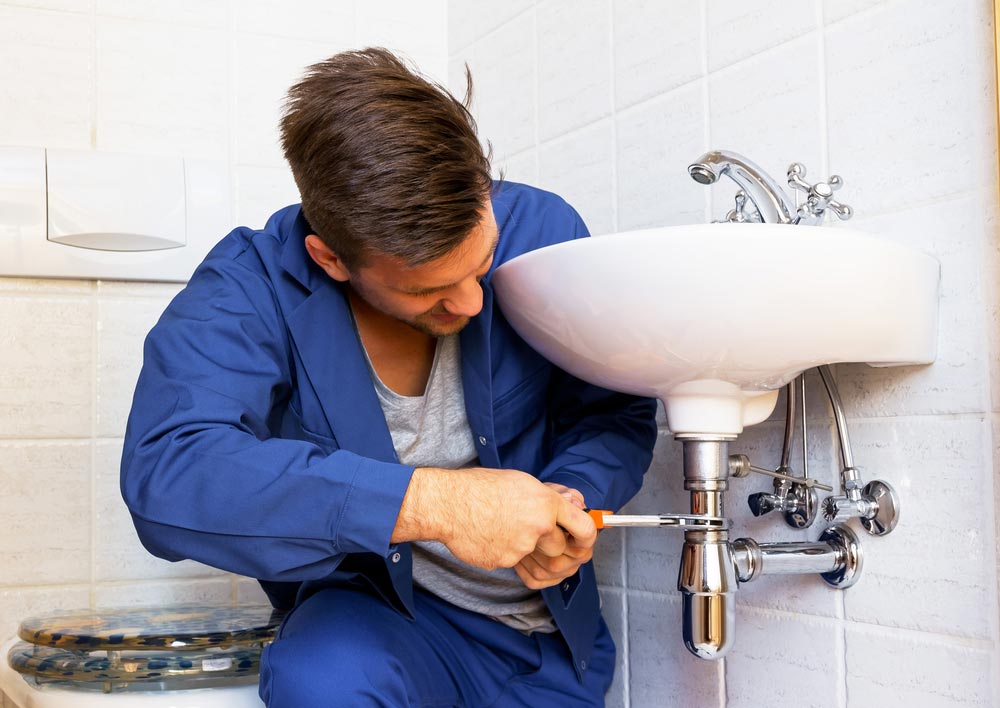Steps to Fix Emergency Plumbing with Effective Tips Until Help Arrives
Steps to Fix Emergency Plumbing with Effective Tips Until Help Arrives
Blog Article
We have stumbled on this post pertaining to Expert Tips for Managing a Plumbing Emergency Until Help Arrives below on the internet and believe it made perfect sense to talk about it with you on this page.

Plumbing emergencies can strike at any moment, triggering anxiety and possible damages to your home. Whether it's a ruptured pipeline, a clogged up drain, or a leaky faucet, knowing how to manage the scenario till a specialist plumbing professional arrives can conserve you from more complications. This post supplies important emergency situation pipes pointers to aid you alleviate damages and restore control during a plumbing crisis.
Turn Off the Supply Of Water
The initial step in any plumbing emergency situation is to shut down the water. For localized issues, such as a dripping tap or commode, shut off the valve near the fixture. In the case of a significant leakage or ruptured pipe, locate your home's main water shut-off shutoff and transform it off right away. Understanding the location of these shutoffs ahead of time can conserve important time during an emergency situation.
Address Tiny Leakages with Short-term Fixes
Tiny leakages can rapidly become substantial issues if left untreated. Make use of these momentary repairs up until professional aid gets here:
While these fixes aren't irreversible, they can aid reduce water loss and damage.
Unclog Drains Pipes Securely
A stopped up drain can be a frustrating and unpleasant problem. Here's just how to tackle it:
If these methods do not work, stay clear of utilizing excessive force, as it might aggravate the blockage.
Handle Overflowing Toilets
An overflowing commode can cause prompt turmoil. Right here's what you should do:
Shut down Your Water Heater
In specific emergency situations, such as a burst pipeline, it's important to shut off your hot water heater. This protects against overheating or damages to the device when water stops streaming. Switch off the power supply to the water heater (electric or gas) and allow it cool to avoid potential dangers.
Momentarily Stop a Burst Pipeline
A ruptured pipe can result in considerable water damages in minutes. To reduce the concern:
Call a specialist plumber instantly to deal with the issue completely.
Manage Frozen Water Lines Meticulously
In cooler environments, frozen pipes are a common emergency. If you believe an icy pipe:
Avoid Further Damage
Taking quick action to minimize damage can save you money and time in the future. Below's exactly how:
. Have an Emergency Pipes Set
Prepare a basic pipes emergency situation kit to handle small problems effectively. Your set ought to consist of:
Having these devices available can make a substantial difference in your ability to handle emergencies.
Know When to Call a Specialist.
While quick fixes can help momentarily, specific pipes problems call for instant specialist interest. Call a plumber if:.
Immediately contacting an expert ensures the problem is settled correctly and protects against further issues.
Verdict.
Plumbing emergency situations can be frustrating, but with the ideal expertise and tools, you can handle the scenario efficiently up until aid arrives. By turning off the supply of water, attending to tiny leakages, and using temporary fixes, you can reduce damage and maintain your home safe. Bear in mind, these pointers are momentary options; constantly get in touch with a licensed plumbing professional to handle the root cause of the problem. Preparation and quick thinking are your best allies in any plumbing emergency situation.
8 Helpful Tips for Managing Plumbing Emergencies at Home
If your plumbing system hasn’t failed once, wait for it because almost everyone has a story to tell. Sometimes, it could be simple emergencies such as a leaking pipe, a blocked cistern, or even a big burst pipe. In situations like this, you need to have some handy tips to save you some money and from possible damages.
Take care of minor issues early.
Sometimes, you could have avoided an emergency by taking proactive measures while it was still early. Some major plumbing emergencies can be a result of an ignored minor issue. We recommend that you have items like plumbing tapes and other related items. A plumbing tape can allow you to manage minor leaks before the plumber arrives.
Cut off the water supply.
This tip is essential in almost any type of leakage problem. For problems like minor leakages in the toilet or kitchen, turn off the supply that takes water to the affected pipes. If the leakage is a major pipe, you must shut off the supply valve to the entire building. This will help you avoid flooding your home and neighbors if you share a flat.
Know your plumbing system
Folks typically move into a new apartment without understanding the water supply around the building. This can prove disastrous if a water emergency arises and the plumber is far away. The previous tip will prove useless if you don’t practice this one. More importantly, know where your water shut-off valve is located – you’ll need that knowledge to prevent potential home floods.
Have some common handy tools
There are lots of plumbing emergencies that you can handle without hiring a plumber. That’s why you must keep some tools available always. Some tools that you can use to fix simple plumbing emergencies easily include plumbing tapes, screwdrivers, thread seal tapes, plungers, pliers, tape measures, and rubber gloves.
Insulate your pipes from cold
You’ll save yourself from many plumbing expenses if you protect your water pipes from the cold. This is because of the harmful effects that cold weather can have on your pipes. During winter, your pipes can burst from being overly expected to freezing temperatures. So, make sure insulators are there to keep the pipes working correctly.
Avoid practices that will clog your toilet.
Many people indulge in practices that can damage the plumbing system of the entire building. One of these is when they use their toilet to dispose-off garbage. They flush all kinds of things, such as paper towels, bandages, hairs, female sanitary products, etc., down the toilet. This will block your toilet in the long run, incurring unnecessary expenditures. Dump such waste in the trash instead.
Check your dials regularly.
Sometimes, there could be leakages in your home without noticing them in time. So, constantly monitor your water meter dial. If the dial is reading when there is nobody using water, this is an indicator that there is leaking. Check for leaks immediately. Call a plumber as soon as possible if you can’t find any.
https://www.constructionplacements.com/8-helpful-tips-for-managing-plumbing-emergencies-at-home/

We had been introduced to that editorial on What to Do While Waiting for an Emergency Plumber through a friend on our other web property. Sharing is good. Helping people is fun. Bless you for being here. Don't hesitate to check up our blog back soon.
Click Here Report this page